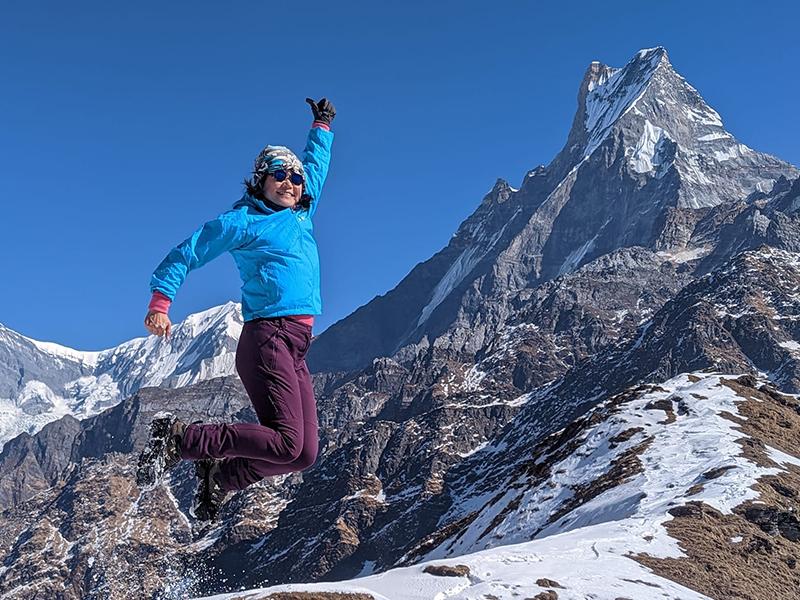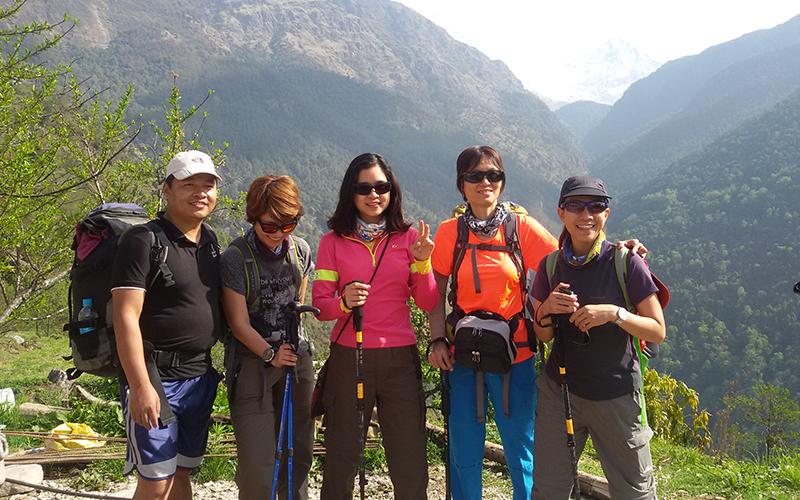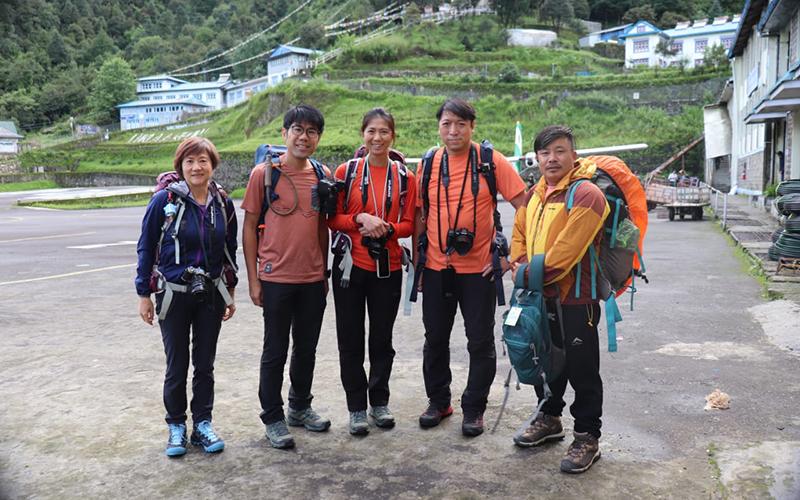How much does the Everest base camp trek cost?

The Everest Trekking Routes Last update in September 2023, the cost of the Everest Base Camp trek can vary depending on several factors, including the route taken, the duration of the trek, the services and accommodations provided, and the trekking company you choose. Generally, the cost can range from $1,200 to $1,500 per person.
Here’s a rough breakdown of the expenses:
- Trekking Permits: The Sagarmatha National Park entry permit and the TIMS (Trekkers’ Information Management System) card are required. The combined cost for these permits is around R. 3000 plus 13% vat for foreign trekkers.
- Flights: Since the trek starts with a flight from Kathmandu to Lukla (the nearest airport to the Everest region), the cost of the round-trip flight is typically around $217, depending on the season and availability.
- Guide and Porter: Hiring a local guide and/or porter is common and recommended, especially if you’re not an experienced trekker or want to lighten the load. The cost of a guide can be around $20 to $30 per day, and a porter may cost $15 to $20 per day. This cost can be shared among the trekking group.
- Accommodation: Tea houses and lodges are available along the trekking route. The cost of a basic room can range from $5 to $50 per night. As you gain altitude, the prices may increase due to the remoteness and difficulty of transporting goods to higher regions.
- Meals: The cost of meals will depend on your choice of food and the remoteness of the location. On average, budgeting $25 to $30 per day for meals is reasonable.
- Miscellaneous: This includes expenses for water, snacks, hot showers (where available), Wi-Fi, and any extra services you may require. Budgeting around $15 to $20 per day for miscellaneous expenses should be sufficient.

Everest Base Camp Trek Cost with Local Operator
The cost of the Everest Base Camp trek with a local operator can be more affordable compared to international trekking agencies. Local operators have a better understanding of the region and can provide a more authentic experience. However, the exact cost will still depend on several factors such as the level of service, inclusions, and duration of the trek. As of my last update in September 2023, here’s a rough estimate of the cost with a local operator:
- Budget Option: If you opt for a budget trek with basic accommodations and minimal services, the cost can range from $1,200 to $1,500 per person.
- Standard Option: For a standard trek with better accommodations, experienced guides, and additional services, the cost can be around $1,500 to $2,500 per person.
- Luxury Option: If you prefer a more luxurious experience with better amenities and services, the cost can go beyond $2,500 per person.
Remember that these prices are approximate and can vary based on the specific operator, the time of year, and any additional services or perks included in the package. Always make sure to inquire about what is included in the price and any potential additional costs to avoid surprises during the trek. It’s also essential to read reviews and choose a reputable local operator with experience in organizing Everest Base Camp treks.
Cost of Food & Water on Everest base camp trek
The cost of food and water on the Everest Base Camp trek can vary depending on where you purchase them along the route and the type of food and drinks you choose. Since most of the trek takes place in remote and high-altitude areas, the cost of goods tends to increase with altitude due to the difficulty of transportation.
Here’s a rough estimate of the cost of food and water on the Everest Base Camp trek:
- Meals: The cost of meals at teahouses and lodges along the trekking route can vary. On average, a basic meal (e.g., dal bhat – rice with lentil soup and vegetables) can cost around $8 to $12. As you go higher in altitude, the prices may increase due to the added difficulty of transporting goods to remote areas.
- Snacks: Snacks such as energy bars, chocolate, cookies, and nuts are available at the teahouses but are more expensive than usual due to the remote location. The cost of snacks can range from $1 to $5 per item.
- Beverages: The cost of tea and coffee can vary but is generally around $2 to $4 per cup. Prices may be higher at higher altitudes. Soft drinks and other beverages might also be available but at higher prices.
- Water: Bottled water is available along the trek, but it becomes more expensive as you ascend. Prices for bottled water can range from $2 to $4 per liter. Keep in mind that single-use plastic bottles contribute to environmental pollution, so it’s a good idea to bring a reusable water bottle and use water purification tablets or filters at higher altitudes where tap water may not be safe to drink.
Cost of Guide & Porter on Everest base Camp trek
The cost of hiring a guide and porter for the Everest Base Camp trek will depend on several factors, including the duration of the trek, the level of experience and expertise of the guide, and the services provided by the trekking agency. Keep in mind that hiring a guide and/or porter is optional, but they can enhance your trekking experience by providing valuable insights, ensuring safety, and assisting with carrying your belongings.
As of my last update in September 2023, here’s a rough estimate of the cost of hiring a guide and porter on the Everest Base Camp trek:
- Guide: The cost of hiring a local guide can range from $25 to $30 per day. This cost usually includes their daily wages, meals, accommodation, and insurance. Hiring a guide is highly recommended, especially if you’re not an experienced trekker or if it’s your first time in the region. A guide can help with navigation, provide cultural information, and handle any unexpected situations.
- Porter: If you decide to hire a porter to carry your main trekking backpack, the cost can be around $18 to $22 per day. This cost typically covers their daily wages, meals, accommodation, and insurance. Having a porter can make your trek more comfortable, as you’ll only need to carry a daypack with essentials.
Cost of Travel Insurance Everest Base Camp Trek
The cost of travel insurance for the Everest Base Camp trek can vary depending on several factors, including your age, home country, coverage limits, the duration of your trip, and the level of coverage you choose. Travel insurance is a crucial aspect of any trek, especially for high-altitude and remote destinations like Everest Base Camp, as it provides financial protection against unforeseen events, medical emergencies, trip cancellations, and other travel-related risks.
As of my last update in September 2023, for a standard Everest Base Camp trek, the cost of travel insurance can range from $50 to $200 or more, depending on the factors mentioned above. Keep in mind that these are rough estimates, and actual prices may vary.
When purchasing travel insurance for the Everest Base Camp trek, it’s essential to ensure that it covers high-altitude trekking (up to the maximum altitude reached during the trek) and medical evacuation by helicopter, as evacuation from remote areas can be costly.
Additionally, carefully review the policy details to understand what is covered and what exclusions apply. Look for coverage for trip cancellations, trip interruptions, medical expenses, emergency medical evacuation, baggage loss, and other travel-related contingencies.
It’s advisable to shop around and compare different travel insurance providers to find the best coverage that meets your needs and fits your budget. Also, consider purchasing insurance well in advance of your trip to ensure coverage for any unforeseen events that may arise before the trek.







